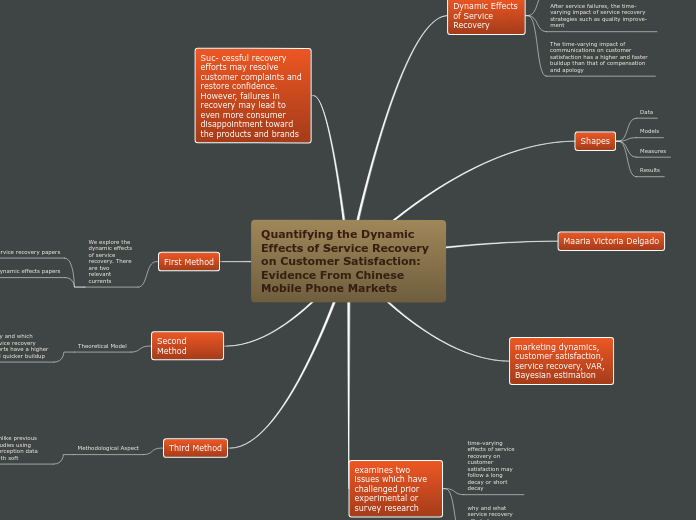Quantifying the Dynamic Effects of Service Recovery on Customer Satisfaction: Evidence From Chinese Mobile Phone Markets
Third Method
Methodological Aspect
Unlike previous studies using perception data with soft
experiments
Surveys
Second Method
Theoretical Model
Why and which service recovery efforts have a higher and quicker buildup
We compare and contrast the buildup intensity and duration with respect to the satisfaction impact of service recovery strategies.
First Method
We explore the dynamic effects of service recovery. There are two relevant currents
Dynamic effects papers
Service recovery papers
Suc- cessful recovery efforts may resolve customer complaints and restore confidence. However, failures in recovery may lead to even more consumer disappointment toward the products and brands
examines two issues which have challenged prior experimental or survey research
why and what service recovery efforts have a higher and quicker buildup
time-varying effects of service recovery on customer satisfaction may follow a long decay or short decay
marketing dynamics, customer satisfaction, service recovery, VAR, Bayesian estimation
Maaria Victoria Delgado
Shapes
Results
Measures
Models
Data
Dynamic Effects of Service Recovery
The time-varying impact of communications on customer satisfaction has a higher and faster buildup than that of compensation and apology
After service failures, the time-varying impact of service recovery strategies such as quality improve- ment
The time-varying impact of compensation on customer satisfaction has a higher and faster buildup than that of apology and communications

